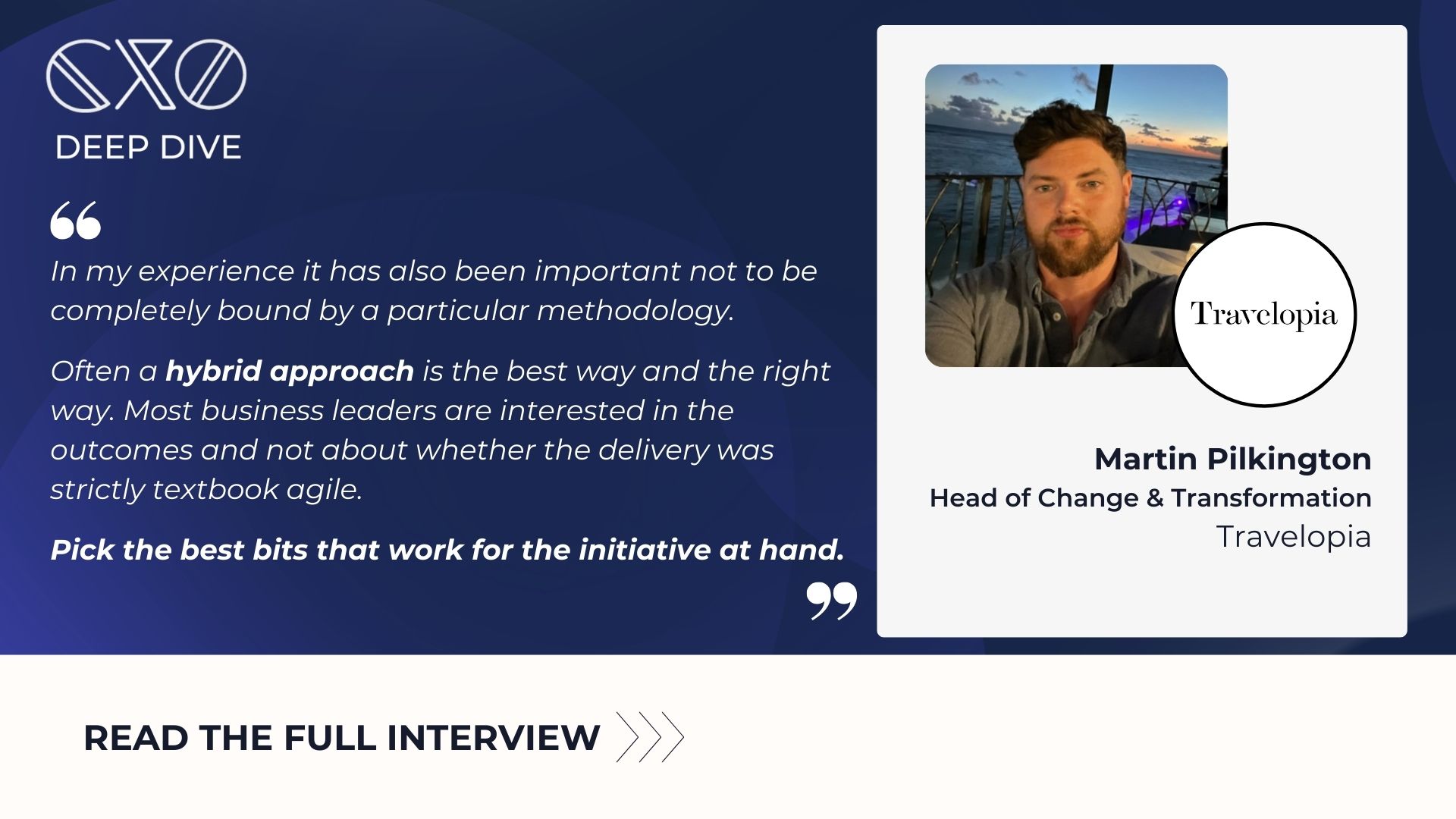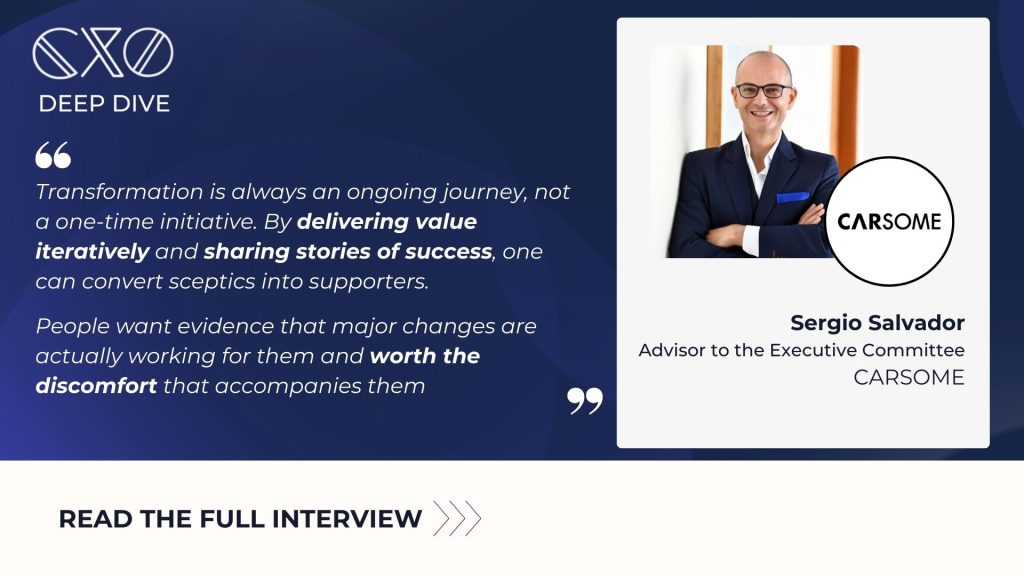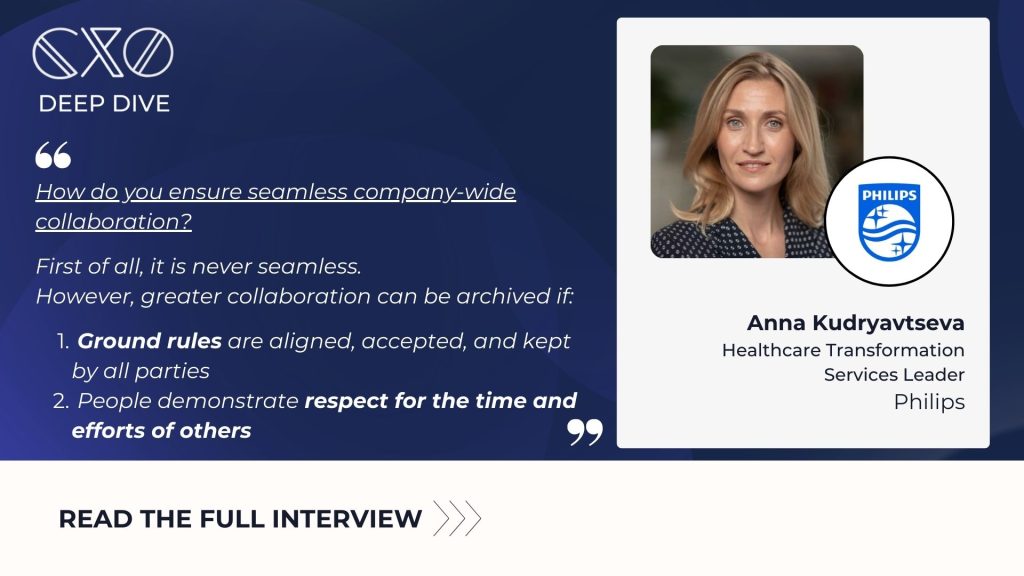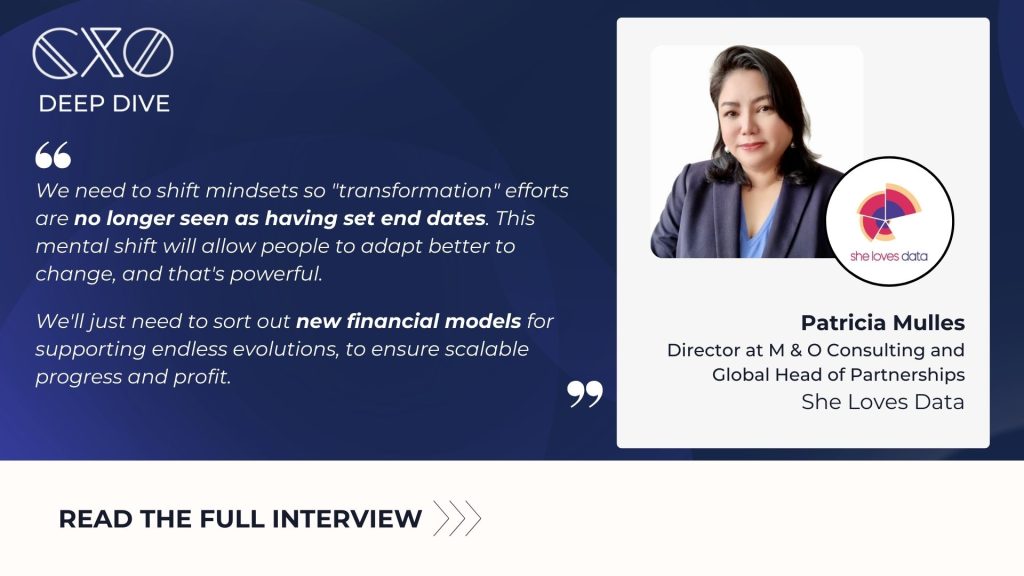Martin Pilkington, Head of Change & Transformation, Travelopia, shares his insights and experiences on Transformation Strategy & Future Trends as part of the CXO Deep Dive series.
“There is no digital transformation, just transformation.” Do you agree or not? Why?
It depends on your viewpoint…
For a Transformation leader, who looks across a diverse business portfolio beyond Technology, Digital Transformation would most likely be a portion of the overall transformation agenda and of course, Technology is increasingly the main enabler of a high portion of overall Transformation portfolios.
If I asked a colleague in Technology, who perhaps worked as an IT Programme Manager or a Product Owner, Digital would likely be the only transformation that is being dealt with and so in that case they are absolutely delivering ”Digital Transformation”
So I think that both have a place depending on the context but that ultimately ”Digital Transformation” is a subset of Transformation as a whole in the same way as one might identify a ”Business Transformation” or ”Culture Transformation”… Digital Transformation is Transformation but not all Transformation is Digital!
Do you see transformation as a distinct skillset, best delivered by “Transformation Experts”, or is it better to be led by the core business?
I think achieving transformation goals is a shared responsibility across a business. The skills and expertise that a Transformation expert or professional can bring can be extremely beneficial but they can rarely achieve on their own. There is a huge combined effort involving Subject Matter Experts from across the business and resource to do a lot of the leg work.
Throughout my career I have been passionate about helping people in businesses to be empowered to be Leaders of Change in their own right. This starts at the top with active (rather than passive) sponsorship and a real pull from sponsors to achieve the desired business outcome. It’s also been important to me to provide colleagues at all levels with the tools and guidance to feel confident to deliver and lead initiatives. People on the front line are more likely to be ”bought in” as they’ve had real input rather than feeling like the recipient of something thought up in a Boardroom.
I do of course value the Transformation Experts skillset (or I’d be out of a job) but I think we are best placed in a collaborative capacity working as a critical friend to the rest of the business.
“It’s crucial to deliver and communicate benefits fast, to build momentum and confidence in transformation projects where there might be scepticism.” Do you agree? Or you have other thoughts on the timeline of a transformation project?
I agree and this approach is certainly beneficial where there is an understandable degree of caution around investment in a new concept or way of working. A proof of concept is normally a good start to demonstrate workability and value. It’s also usually a lot easier for stakeholders to digest and have confidence in the achievability of an ambitious initiative if this is broken up into phases under a clear roadmap which brings to life what elements will be delivered and when and where the benefits will come in. If you were climbing a mountain with one side a cliff face and the other a steady slope, you’d likely see the slope as the easiest pathway to the top.
I think it’s also important for the Transformation professional to be thinking longer term when other colleagues may be thinking about the more immediate return – so in Tech for example selecting a system that can grow with the businesses’ needs and that isn’t going to be restrictive in future.
What is the best way to incorporate agile ways of working to accelerate transformation?
The first thing for me would be to demystify some of the language and terminology around Agile as a methodology. I have found that some language like ”ceremonies” and ”retrospectives” can be quite alienating to some members of businesses. Whilst it’s fine to use whatever terminology works I think it’s more important to be clear on the purpose of a concept, way of working or meeting and spell out exactly what the purpose and value is for those involved. I’ve seen it many times before where business teams switch off when they feel like they are listening to someone who has swallowed a project management textbook.
In my experience it has also been important not to be completely bound by a particular methodology. Often a hybrid approach is the best way and the right way. Most business leaders are interested in the outcomes and not about whether the delivery was strictly textbook agile. Pick the best bits that work for the initiative at hand.
Do you expect certain uses of technology to decline in the near future?
No, I think like anything it will evolve, and I’m certainly noticing more of a desire for simplicity in Tech, from a user perspective at least. Technology has a great role to play and is the pillar of lots of things we rely on in the modern world but I could envisage more moves to simple user experiences and interfaces, for instance. Personally, I saw a mobile phone advertised just the other day which provided only very basic functionality but included WhatsApp and Maps, and I must admit, the restriction on information to absorb and the limitation in mindless scrolling opportunities felt appealing.
Can you give an example of how you’ve engaged with front-line staff at the outset of a transformation project, the approaches you took, and the outcome?
Yes, what I have tended to do is ensure that a selection of motivated front-line staff are involved in the early stages of discovery and decision-making around design. They then feel empowered and quite rightly that they are a big part of the decisions that impact themselves and their colleagues directly. Their role will then evolve to a Change Champion through implementation where they really have the ear of their colleagues and peers on the front line who would generally be much more inclined to trust and embrace information coming from colleagues they work with directly. I’ve seen this approach work well at various stages of my career, whether that be in healthcare and care homes, travel bases, holiday parks or Banking retail units and head office departments. The other important lesson I’ve learnt is to never assume that colleagues on the front line aren’t interested from the outset – I’ve found that many people want to be involved if only given the opportunity, and I’ve seen the results of the error of backloading front-line engagement to the very end when we want people to perform their role differently or work with a different technology, tool, structure or set of processes.
How would you explain your job to a 5-year-old?
Turning great ideas, thought-up by many people, into reality through setting up and carrying out big and small pieces of work that come together to make the business better for everyone.
A big thank you to Martin Pilkington for sharing the insights on Transformation Strategy & Future Trends!
Visit our content library for more insights from the CXOs: https://cxoinnovation.com/content-library/
Join our LinkedIn CXO Community.
